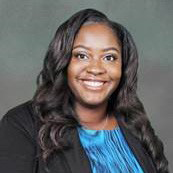News Archive
Gregory R. Weiher
1948 - 2019
We were saddened to learn of the passing of Gregory R. Weiher, Ph.D., who died Sunday,
Sept. 29,  2019, in Houston, Texas. Our colleague Greg joined the Department of Political Science
in September of 1984 after receiving a Ph.D. from Washington University. He was promoted
to associate professor with tenure in 1991 and promoted to professor in 2003. Greg
served the department and the university in a number of administrative positions.
He was Director of the Center for Public Policy from 1991 to 1995; he was Director
of the Master’s Program in Public Administration from 2007 to 2008, and chair of the
political science department from 2008 to 2011. Throughout his time at the University
of Houston Greg played a major role in the public administration program and helped
train many MPA students who went on to successful careers in the public sector. Greg
was also a prolific scholar. His major field of interest was urban and educational
policy, and he published a number of well received books and articles on those subjects.
His book, The Fractured Metropolis: Political Fragmentation and he Metropolitan Segregation was chosen by the Gustavus Myers Center as the Outstanding Book on the subject of
human rights in 1992. He also published more than twenty peer-reviewed articles or
chapters in some of our best outlets for academic research. Most of his articles
were on urban affairs or education. They include four articles published in the Journal of Politics, one of the top three general audience journals in the discipline. He also published
articles in Political Research Quarterly, Social Science Quarterly, the Policy Studies Journal among others. Greg also raised a voluminous amount of grant money for the University.
During his career at the University of Houston Greg was Principal Investigator or
Co-Principal Investigator on grants totaling $1,959,863. He contributed to the department
and University on all the metrics for excellence. He was a scholar, an administrator,
a grantsman, an excellent teacher, and most importantly a first class friend and colleague
to all who knew him.
2019, in Houston, Texas. Our colleague Greg joined the Department of Political Science
in September of 1984 after receiving a Ph.D. from Washington University. He was promoted
to associate professor with tenure in 1991 and promoted to professor in 2003. Greg
served the department and the university in a number of administrative positions.
He was Director of the Center for Public Policy from 1991 to 1995; he was Director
of the Master’s Program in Public Administration from 2007 to 2008, and chair of the
political science department from 2008 to 2011. Throughout his time at the University
of Houston Greg played a major role in the public administration program and helped
train many MPA students who went on to successful careers in the public sector. Greg
was also a prolific scholar. His major field of interest was urban and educational
policy, and he published a number of well received books and articles on those subjects.
His book, The Fractured Metropolis: Political Fragmentation and he Metropolitan Segregation was chosen by the Gustavus Myers Center as the Outstanding Book on the subject of
human rights in 1992. He also published more than twenty peer-reviewed articles or
chapters in some of our best outlets for academic research. Most of his articles
were on urban affairs or education. They include four articles published in the Journal of Politics, one of the top three general audience journals in the discipline. He also published
articles in Political Research Quarterly, Social Science Quarterly, the Policy Studies Journal among others. Greg also raised a voluminous amount of grant money for the University.
During his career at the University of Houston Greg was Principal Investigator or
Co-Principal Investigator on grants totaling $1,959,863. He contributed to the department
and University on all the metrics for excellence. He was a scholar, an administrator,
a grantsman, an excellent teacher, and most importantly a first class friend and colleague
to all who knew him.
- Kent Tedin
UH Election Lab Launched
In UH’s Election Lab, a team of undergraduate students work closely with faculty to
explore the process of voting, focusing on how we vote and how elections are administered.
Current and future projects including how successful high schools are at registering
eligible students, the growing frequency of recall elections, the impact of mobile
polling locations, the effectiveness of countywide vote centers, and turnout on college
campuses.
If you are interested in participating, email Professor Brandon Rottinghaus (bjrottinghaus@uh.edu).
UH Election Lab team members in 2020.
Check Out New Research on Conspiracy Theories and Politics Published by PhD Candidate
Yongkwang Kim!
Kim, Yongkwang. "How conspiracy theories can stimulate political engagement." Journal
of Elections, Public Opinion and Parties (2019): 1-21.
https://doi.org/10.1080/17457289.2019.1651321
Title: How Conspiracy Theories Can Stimulate Political Engagement
Considering that Americans widely hold conspiracy theories, what are the behavioral
consequences of exposure to and belief in conspiracy theories? In this article, I
hypothesize that conspiracy theories can actually increase political participation.
First, I explore whether conspiracy beliefs translate into political engagement. By
analyzing a random sample of the national U.S. electorate, I find that people who
believe in conspiracy theories (Barack Obama was not born in the U.S.; the 2010 ACA
authorizes death panels; the government intentionally breached the flood levees during
Hurricane Katrina; the government knew about 9/11 before it happened) are more likely
to engage in conventional political activities. Second, I examine whether exposure
to conspiracy theories drives intention to participate in politics. Across two survey
experiments, I find that people who were exposed to a nascent conspiracy theory that
emerged during the 2016 presidential primary elections are more likely to intend to
participate in politics. The results indicate that conspiracy theories may lead to
positive action, encouraging people to get involved in politics, and demonstrate that
the spread of conspiracy theories is not uniformly detrimental to society. These findings
also help to explain why elites within losing political organizations are more likely
to spread conspiracy theories: they are a means for mobilizing disenfranchised citizens.
Student Wins National Fellowship
 Congratulations to first year PhD student Naomi Nubin-Sellers, who was appointed to
the American Political Science Association’s 2018-19 Minority Fellowship Program.
This nationally-competitive program will support her studies and provide her with
networking opportunities. Naomi’s broad research interests are in the fields of American
politics and public policy, with an emphasis on incorporating intersectionality into
our current understanding of the political process. She is currently researching how
intersectionality affects support for redistribution policies and whether legislative
infrastructure affects how often African American female candidates run for office
in state legislatures. She earned a BS in administration of justice and political
science and an MPA, both from Texas Southern University, where she also worked as
a research assistant. Naomi is planning to pursue an academic career in teaching and
research.
Congratulations to first year PhD student Naomi Nubin-Sellers, who was appointed to
the American Political Science Association’s 2018-19 Minority Fellowship Program.
This nationally-competitive program will support her studies and provide her with
networking opportunities. Naomi’s broad research interests are in the fields of American
politics and public policy, with an emphasis on incorporating intersectionality into
our current understanding of the political process. She is currently researching how
intersectionality affects support for redistribution policies and whether legislative
infrastructure affects how often African American female candidates run for office
in state legislatures. She earned a BS in administration of justice and political
science and an MPA, both from Texas Southern University, where she also worked as
a research assistant. Naomi is planning to pursue an academic career in teaching and
research.
Naomi Nubin Wins 3rd Place in Graduate Research Showcase Competition at UH
On 11/1/19, the University of Houston held a Graduate Research Showcase that included
100 participants from across the university. This event was intended to showcase the
breadth and depth of groundbreaking research being undertaken by UH graduate students.
Naomi Nubin took 3rd place in this competition, an immense achievement.
participants from across the university. This event was intended to showcase the
breadth and depth of groundbreaking research being undertaken by UH graduate students.
Naomi Nubin took 3rd place in this competition, an immense achievement.
Nubin's research for this competition was in the form of a poster, and focused on
the impact of social diversity on the relationship between state-level political environments
(Legislative competition, citizen ideology, governor's party) and Temporary Assistance
for Needy Families (TANF) program benefits at the individual level. Her results support
the notion that citizen ideology has a major impact on TANF actual recipient benefits
when social diversity (Black and Latin populations) within a state is high. So, when
states are more racially heterogeneous, citizen ideology has a strong impact on TANF
cash benefits at the individual level. The goal of this project was two-fold, to further
understand the impact of state level political environments on the states' most vulnerable
populations, and to shine light on prevalent perceptions in American society regarding
welfare cash benefits and minority communities.